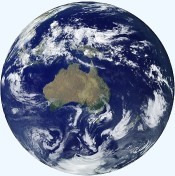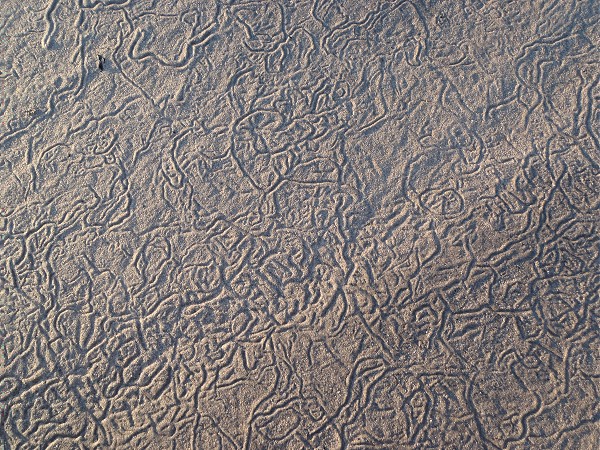
Session 2: "Let them deny themselves and take up their cross and follow me" (Mk 8:34)
Rebecca Newland
| Download this part (pdf) |
Gospel = Mark 8.31-38
Pattern = Selfishness
Practice = Surrender
Discipline = Simplicity
By my reckoning, there are two critical questions to answer in life—"Who am I?" and "Who is Jesus Christ?" A third question is "What is the relationship between these two, myself and Christ?" It takes some reflecting and pondering to arrive at an answer that fits well. Yet in our culture, we are more likely to ask, "What can I get from life, from God, from others, from this situation?" Our whole consumerist society is built on the idea that we have a right to the good life, to having our wants fulfilled and our dreams actualized. At no other time in human history have individual human beings been more the centre and focus of their universe. Yet, at the same time, we are more disconnected from that universe than ever before.
In Western developed nations we live in a highly mediated society. That is, we are cut off from the natural world by plumbing, insulation and concrete. The world comes to us via the Internet, television and radio. We are not longer 'in' it. If you have ever lived for any period of time with a tribal people who live directly from the land and have no access to electricity and water on tap this becomes almost painfully obvious. The culture shock is not being in that community. The culture shock is when you step out of the plane at Sydney airport into an air-conditioned terminal, a taxi and a concrete jungle. More than half of the world's population now lives in cities and towns and the number is set to increase. As Sally McFaugue puts it,
Many of us and many more of our children have never known wilderness or experienced nature relatively free from human tampering. We do not know wilderness as a yardstick, which provides a yardstick of how we have changed the environment.[2]
Our mediated, disconnected existence contributes to our denial and the illusion that we are in control.
In this context where does the question, "Who is Jesus Christ?" lead us? Just prior to Jesus telling his listeners that if anyone wants to be his follower they must deny themselves, take up their cross and follow him, he had a revealing conversation with his disciples. He asks firstly, "who do people say I am?" They offer various answers. He next asks, "But who do you say I am?" Peter answers, "You are the Messiah." This short passage is called the turning point in the Gospel narrative. It is a turning point for us as well and leads to more questions! Who and what is the Messiah? The theology of the New Testament is largely an attempt to answer that question.
Here are just some passages that offer an answer: John 1.1-9, Colossians 1.15-20, Romans 1.1-7, Galatians 5.1, 1 Peter 1.3-5.
If you read them and many others you will find that they offer an almost unimaginable vision of who Jesus the Christ is. The world, the Earth, was made through him. He is before all things and in him all things hold together. He is the head of the Body, the gathered believers. His purpose is freedom. He is our imperishable, unfading hope. Our creed states that he sits at the right hand of God. With God and the Spirit, as God, he sustains the whole of creation and his Spirit is the very breath of all life. Without his sustaining power we, everything, cease to exist.
Such a vision should cause us to stop and to jettison any picture that our Lord is distant and removed from our daily existence, from the environment and the people we meet. That old picture we have of a bearded, male God sitting on a heavenly throne, distant and inaccessible, should really be ditched once and for all. Instead, every breath we take is a wonder. Every insect, tree, fish and fowl is a miracle. Everything is a moment of beauty and we should all be on our knees in awe and humble adoration. Maintaining our selfish, ego-driven lifestyle simply keeps us in chains and disconnected from the presence of God. What gets in the way of us knowing God, as in knowing intimately, and knowing his Reality (which means God and everything else) is the walls of our self.
That is why surrender is such a critical step in connecting to God, in healing the fractures in our lives and our relationship to earth. We, as in the ego-self, need to get out of the way, to let go of power and the illusion of control. This illusion of control is dire when it comes to the environment. The knowledge we possess will be useful and critical in solving many of our environmental problems, but the greatest advances will be made when we develop a realistic picture of who we are and our relationship to God's universe. We are not lords over the planet. We are the product, via the creative power of God, of its processes—four billion years worth, fifteen billion if you add the rest of the universe.[3]
Surrender of the self is the practice (daily if needed) that takes us into our true reality and freedom. The discipline that helps us consciously to connect to creation and order our lives is simplicity. Richard Foster in his well-known book Celebration of Discipline, quotes an old Shaker hymn:
'Tis the gift to be simple,
'Tis the gift to be free,
'Tis the gift to come down to where you ought to be,
And when we find ourselves in the place just right,
'Twill be in the valley of love and delight.
When true simplicity is gained,
To bow and to bend we shan't be ashamed.
To turn, turn will be our delight
'Till by turning, turning we come round right.
True simplicity is an inward reality that results in an outward lifestyle.[4] Lance Mitt has developed a simple formula to bring that inward and outward reality together: Clarity + courage + calendar = simplicity. He makes it sound very simple and I suspect it is. He writes,
First, I must get clarity around what is really important in my life. Because of the drift towards clutter and complexity, this must be revisited on a regular basis. But it is not enough to simply have clarity. I must also have the courage to execute based on clarity . . . Finally, the courage to execute gets very practical when I calendarize my priorities.
Putting a high priority on what we value means we make room for it in our lives. Do we value our relationship with our Lord? Do we value the gift of our Earth home? Do we value other people and their place in God's heart? Do we value our family and friends?
Group reflection
Spend some time considering the above and the Gospel passage. Discuss the Gospel passage first. What words and phrases in both stood out for you?
Questions for individual reflection and sharing if you wish
- Look at the photo below. What thoughts come to mind as you look at it? The pattern is from the tracks made in the sand by very small molluscs. Their lives are determined by the ebb and flow of the tide. In what ways could this be a picture of surrender and simplicity?

- Write a short answer to "Who am I?" and "Who is Jesus Christ?" Ponder that third part, "What is the relationship between these two—myself and Christ?"
- What thoughts come to your mind as you reflect on the idea of surrender? What is hard about surrendering to God? What makes it easy?
- If the triune God is truly part of the fabric of life and all things, what does this tell you about your own body and the world in which you walk? How would this change the way you live each day? Experiment with this idea and try consciously to live this reality for twenty minutes as you go about your normal activities?
- Spend some time reflecting on your daily life. List the things that you value the most in life. How much of your time and energy do you spend on those things? Is there anything you can say "no" to that would free up more time for those things you value?
Notes
2. McFague, S. Op. cit.
3. McFague, S. Op. cit.
4. Foster, R. Celebration of Discipline.